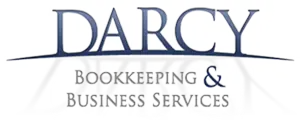


Keeping your books accurate is essential for your business's success. Every transaction, no matter how small, contributes to the overall financial health of your business. When records are properly maintained, you gain a clear picture of your small business finances, cash flow, profits, and liabilities, allowing you to make informed financial decisions. That's the power of bookkeeping done right. But bookkeeping errors happen more often than you think.
Even small mistakes, like forgetting to log an expense or misclassifying a transaction, can snowball into major issues down the line. If errors go unnoticed, they can result in financial losses, costly penalties, or even legal trouble with tax authorities. Read this post to learn how to avoid bookkeeping errors.
Bookkeeping mistakes happen all the time. When you don’t track expenses properly or misclassify transactions, your business can suffer. Inaccurate records can result in incorrect tax filings, cash flow issues, and even legal trouble. The key to avoiding these problems is knowing what the most common small business bookkeeping mistakes are and how to fix them.
The impact of bookkeeping mistakes extends beyond numbers—it affects your business's credibility and operational efficiency. Late tax filings, missing receipts, and discrepancies in your financial statements can raise red flags for auditors, investors, and lenders. Additionally, poor bookkeeping practices make it harder to track profitability, plan for growth, and secure business financing.
The good news? You can avoid these pitfalls with the right approach. By staying organised, using reliable bookkeeping tools, and reviewing your records regularly, you can keep your books error-free. Whether you’re handling bookkeeping yourself or outsourcing it to a professional, understanding the most common mistakes and how to fix them will save you time, money, and stress.
If you don’t keep detailed financial records, you’re setting yourself up for bookkeeping errors. Missing receipts and invoices can lead to incorrect tax deductions and financial discrepancies.
Use accounting software or cloud-based bookkeeping tools to track every transaction. Make it a habit to scan and store receipts digitally so you never lose them.
Combining your small business finances with personal expenses makes it hard to track spending, which can impact tax deductions.
Open a dedicated business bank account and only use it for business transactions. This simple step makes bookkeeping, tax preparation, and financial tracking much easier and more accurate.
Small expenses add up quickly. If you ignore them, your budget and tax filings will be inaccurate.
Use expense tracking apps or a business credit card to record every purchase. Keeping an organised budget will help you identify where money is being spent unnecessarily, ensuring your business stays financially healthy.

If you don’t reconcile your bank statements, you could miss fraudulent charges or common accounting mistakes in your records.
Set a schedule to reconcile your accounts every month. This process helps you confirm that transactions match your records, reducing the chances of errors and fraud.
Misclassifying expenses makes your financial statements inaccurate, which affects budgeting and taxes.
Learn proper classifications or consult a bookkeeper to categorise expenses correctly. For example, office supplies and capital expenses should be recorded differently, as they impact tax deductions in different ways.
Missing tax deadlines leads to penalties and interest charges.
Set calendar reminders for tax due dates and automate payments where possible. Keep all necessary tax documents well-organised so you can easily access them when filing taxes.
Losing your financial records can create major problems if you need to prove expenses or file taxes.
Use cloud storage and automated backups to secure your data. Regular backups protect your business from accidental data loss due to technical failures or security breaches.
Accounting software is helpful, but it’s not perfect. Automation can create errors if you’re not reviewing transactions.
Manually check reports and verify accuracy regularly. A second review by a professional bookkeeper can also help prevent common accounting mistakes.
Ignoring financial reports means you won’t see cash flow problems or trends in your business.
Schedule monthly financial reviews to track key metrics like profits, expenses, and outstanding invoices.
Regular reviews help you make informed business decisions and stay financially secure.
Trying to handle everything on your own might be one of the most important accounting mistakes to avoid.
If bookkeeping overwhelms you, hire a professional bookkeeper or accountant. Their expertise can help you save time, ensure compliance, and avoid costly financial mistakes.

Stay organised, review your records regularly, and use reliable accounting software. When in doubt, get professional help.
The three fundamental bookkeeping best practices are recording transactions accurately, reviewing financial statements regularly, and keeping financial records organised.
Keeping up with accuracy and organisation is the biggest challenge. Mistakes happen when records are neglected.
Every financial transaction should be recorded correctly and promptly to ensure balanced books.
By implementing these financial record-keeping tips, using reliable bookkeeping tools, and seeking professional help when needed, you can keep your small business finances on track. Don’t let small business bookkeeping mistakes cost you time and money. Get expert help today!
Visit Darcy Bookkeeping and Business Services or call us on 1300 728 875 to keep your finances on track.
